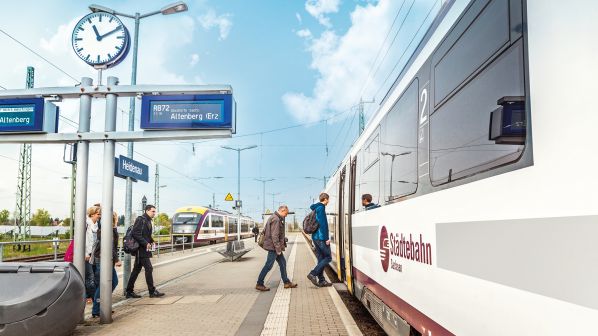The figures, supplied by the German Federal Labour service, show the total number of qualified drivers was 46,802 in 2018, a 5163 increase from 2015. The biggest growth was in U-Bahn and light rail drivers, which increased by 2345 (+17%), while the number of main line drivers only increased by 10.1% over the same period, and at significantly slower rates in recent years.
Allianz pro Schiene notes that unemployment rates amongst qualified train drivers are no more than around 1%, as demand continues to outstrip availability. There are around 650 such jobs currently advertised and not filled, with the growth in passenger services, largely caused by tendering authorities specifying additional services, and the age profile of existing drivers leading to a national shortage.
Unlike many European Union (EU) countries where operating staff automatically transfer to new operators if contracts change between operators, this is not always the case in Germany, unless it is specified by the contracting authority. This aggravates the effects of driver shortages as ‘new’ operators have to recruit all the required operating staff, while those employed by the previous operator often have no incentive to switch operators as they lose their existing employment benefits.
Efforts by operators, supported financially by the regional governments, to train more drivers are underway, with some training programmes targeting potential applicants from ‘new’ sources, such as refugees who arrived in Germany after 2015.
Just as most German state governments have created state-owned rolling stock leasing companies (Roscos) to own fleets which are then leased to tendered operators, there have been serious discussions about the creation of similar employment companies to provide the drivers for the fleets.
This year, Saxony regional operator Städtebahn Sachsen (SBS) became insolvent and abruptly ceased all services when it lost access to its leased train fleet due to non-payment of leasing charges. Driver shortages were among the reasons cited for SBS’s failure. The contract was subsequently re-tendered on an emergency basis and awarded to Transdev, which is being paid more to operate the services - reflecting, in part, increased pay rates to attract and retain staff.
French National Railways (SNCF) subsidiary Keolis lost a contract that was due to start in mid-December to operate S-Bahn services in the Ruhr area as the awarding transport authority VRR determined the operator was insufficiently prepared, mainly due to a lack of drivers. Similar, but less severe, problems led to Abellio subcontracting operation of several Ruhr S-Bahn contracts due to start in December back to the previous operator, DB Regio, for three months until March 2020.

